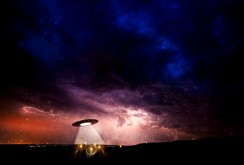
While professional philosophers are attempting to label philosophy as a subject to answer big questions, such as “Who are we?”, “Where are we from?”, “Can we know anything?”, and so on, they have a great difficulty to answer the question of “what is philosophy?”. This question is so intimidating to professional philosophers that most of them even don’t bother to answer it. Nevertheless, the development of the academic philosophy has been derailed off the right track in different directions at different historical times by the wrong answers to this question from prominent philosophers in history. All the definitions of philosophy given by the academic society of philosophy have shared one commonality: partially reducing the territory of philosophy to a very narrow sub domain of philosophy.
When Kant said “Ancient Greek philosophy was divided into three sciences: physics, ethics, and logic. This division is perfectly suitable to the nature of the thing; and the only improvement that can be made in it is to add the principle on which it is based, so that we may both satisfy ourselves of its completeness, and also be able to determine correctly the necessary subdivisions”, he narrowed the scope of philosophy not only because his limited knowledge in sciences at that time, but also because he ignored that the task of philosophizing should not be just limited to the education as he pointed out, but should expand to the perceptions of all existences.
When Hegel made philosophy equal to his new logical system that was comprised of metaphysics and logic together with their common dialectics, he was quite close to the whole picture of philosophy since his system includes the Idea and Notion, which could account for everything as he pointed out. However, his philosophy was greatly narrowed into the so-called dialectic logic because of his own outpaced vocabulary, as well as the misunderstandings of his vision by the world because of his failure of expressing his vision in a better way.
When the existentialists extended Kierkegaard’s theory about existence in his theological framework into the general social world, obviously they narrowed the scope of philosophy way too much off what it really is.
When Whitehead claimed that philosophy was to provide a self-content logical framework for empirical knowledge, he was only partially right. When Russell said philosophy was something between theology and science, he was also missing a great deal about philosophy. And when Wittgenstein claimed that philosophy was about the interpretation of the language used in the knowledge created in all fields, as his teacher Russell noticed, he also greatly narrowed the scope of philosophy, although that emphasis on language interpretation helped our civilization to make a great progress at that time.
When dialectic materialists claimed that philosophy was the methodology and world-view, they also severely underestimated the power of philosophy in human civilization, since their definition not only missed logic and metaphysics, but also missed life-view, aesthetic view, and so on. They actually also proposed another definition which was closely related to the above definition but much trickier and more confusing, which was “philosophy is the love of truth instead of love of wisdom.” The tricky part is that there are actually no globally accepted criteria about what are the truths, and they wanted others to believe Marxism or communism to be the truth as they did. Even though, as I discussed above, lacking a hard criterion for true values is a profound cause for many problems in the professional discipline of philosophy, the love of wisdom instead of the love of a nominal truth would be the best academic foundation for all particular sciences, which is philosophy.
The reason why the confusion about “what is philosophy” was serious is because all abovementioned narrow definitions of philosophy have caused philosophy to go astray in different ways and caused confusion or even turmoil in the mainstream society accordingly.
As a result, today the love of wisdom in the discipline of philosophy has been utterly replaced by the contentedness of providing answers to various issues with an array of existing names, fields, isms, and all kinds of seemingly helpful knowledge that would bring the aura of “being knowledgeable” to the supposedly problem solvers. In response to this sad reality, I wrote a series of short essays earlier this year, and now I am edit them into a long essay: WHAT IS PHILOSOPHY? (https://fairlifebook.wordpress.com/2019/09/09/what-is-philosophy/)

















